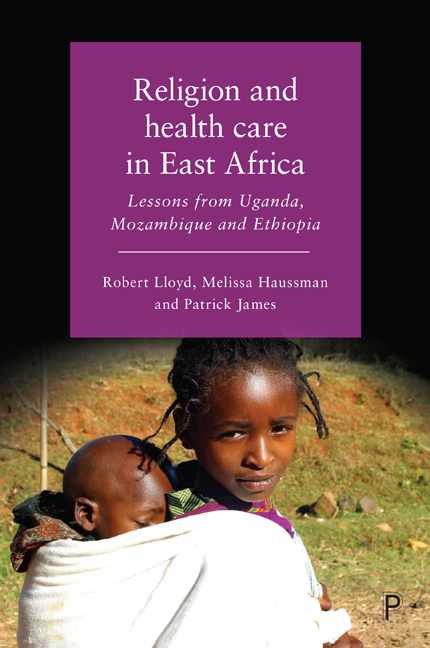3 - Uganda
Published online by Cambridge University Press: 27 April 2022
Summary
Overview
This chapter focuses on religion and the Social Determinants of Health in Uganda, a low-income, developing country with a complex history that includes independent African kingdoms, British colonial rule, and independence since 1962. The two basic questions from Chapter 1 will be answered to varying degrees: “How does religion contribute to the Social Determinants of Health?”; and “What is its connection to outcomes?”
This chapter, to foreshadow its contributions, begins with an overall sense of Uganda as a poor state with a mixed and frequently unsuccessful performance from its government. With regard to health care, efforts toward planning exist but the government either lacks or fails to provide sufficient resources to produce good outcomes across the board. For example, state-created Village Health Teams have led to some improvements but not all regions possess this resource and the overall level of funding is simply inadequate to meet public needs. This ongoing feature of life in Uganda opens the door to faith-based provision. Ugandans, on the whole, are quite religious and efforts from Faith-Based Organizations to offer health services are well received. Traditional healing finds a place alongside modern medicine, with unscientific practices linked to witchcraft receding into the background but not disappearing altogether. Religious institutions have positive effects overall but impact to some degree in a negative way on women's health as assessed on the basis of the Millennium Development Goals (MDGs). In sum, the chapter will reveal that religion plays an essential role in Uganda for both the provision and consumption of health care.
Located in Eastern Africa, the Republic of Uganda is slightly smaller than the American state of Oregon. Uganda is a landlocked state bordered by Rwanda, the Democratic Republic of Congo (DRC), South Sudan, and Kenya. Uganda also shares a border with Tanzania along Lake Victoria and has a fast-growing population of about 37 million people, which is a bit larger than the American state of California. The capital and largest city in Uganda is Kampala, located near Lake Victoria (CIA World Factbook 2016).
Uganda is ethno-linguistically diverse, with 41 languages (Ethnologue 2016a). English is the official language in the country, though Ganda (or Luganda) is also used for wider communication. Swahili (or Kiswahili) is the national language of Uganda, though Luganda is spoken as a lingua franca in Buganda.
- Type
- Chapter
- Information
- Religion and Health Care in East AfricaLessons from Uganda, Mozambique and Ethiopia, pp. 41 - 80Publisher: Bristol University PressPrint publication year: 2019



